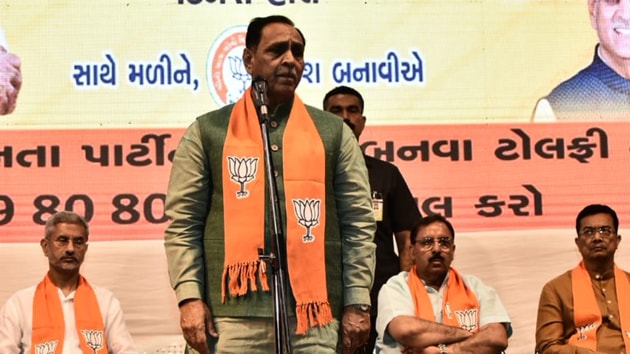In Gujarat’s ‘disturbed areas’, no sale of property without collector’s nod
The opposition Congress demanded abolishment of the law claiming that it deepens what it called was a “communal divide”, insisting that such a law was not needed in a “peaceful state” such as Gujarat.
The Gujarat assembly on Monday approved stricter punishment for violation of a state law that prohibits sale and tenancy of immovable property to persons of another religion in the areas notified as disturbed, amid opposition from the Congress party.

The amendment enhanced the punishment for violation of the Prohibition of Transfer of Immovable Property and Provision for Protection of Tenants from Eviction from Premises in Disturbed Areas Act, 1991, from earlier six months to three to five years or fine of ₹one lakh or 10% of the stamp duty in place of earlier fine of ₹10,000.
Another important change in the law approved by majority voice vote of the ruling Bharatiya Janata Party (BJP) was mandatory district collector’s nod for any property transactions in the disturbed areas. Till now, consent of the buyer and the seller was required for property transaction. The change in the law also empowers the state government to review the collector’s decision in this regard, said Gujarat law minister Bhupendrasinh Chudasma.
“Before giving a nod, the collector will check if the particular deal can lead to a possibility of polarization in any area and if there is possibility of imbalanced ratio of people from particular community”. The collector will be assisted by a special investigation team, which will be comprised of municipal commissioner and commissioner of police to check whether the property transaction will lead to polarization or imbalance between two communities in that area,” Chudasma said.
The opposition Congress demanded abolishment of the law claiming that it deepens what it called was a “communal divide”, insisting that such a law was not needed in a “peaceful state” such as Gujarat.
“The BJP has been ruling the state for over 2 decades now. When the Gujarat Model is promoted as peaceful and progressive, such a law by the government will only divide the communities and push them to live in different areas. If Gujarat is safe and secure and hasn’t seen curfew in recent times, then why is such an Act required. The government should protect any property, irrespective of the community of the owner,” said Congress MLA from Dariyapur in Ahmedabad, Gyassudin Sheikh in the state assembly.
Chudasma said the changes in the law introduced by the Congress government in 1991 were required for its effective implementation. The law was first introduced through an Ordinance by the Congress-led government in 1986, soon after 1985 communal riots. It was converted into a law in 1991 by then Chimanbhai Patel-led coalition government.
After the riots in 1992 and 2002, parts of cities notified under the law are in Ahmedabad, Vadodara, Surat Godhra, Himmatnagar, Kapadvanj and Bharuch. In the past, the law had mainly attracted dispute involving Hindu and Muslim communities, especially from sensitive areas of these localities.
Sheikh said the state government has not declared how many properties have been transferred under this law till now.
In 2018, residents of Ahmedabad’s Paldi had protested against sale of flats in Varsha Apartments, where in number of Muslim tenants had gone up following the redevelopment of the property. The case is sub-judice. In 2018, the Vishwa Hindu Parishad had objected to similar property deals in Hindu-dominated area of Bhavnagar city which is classified as sensitive.






